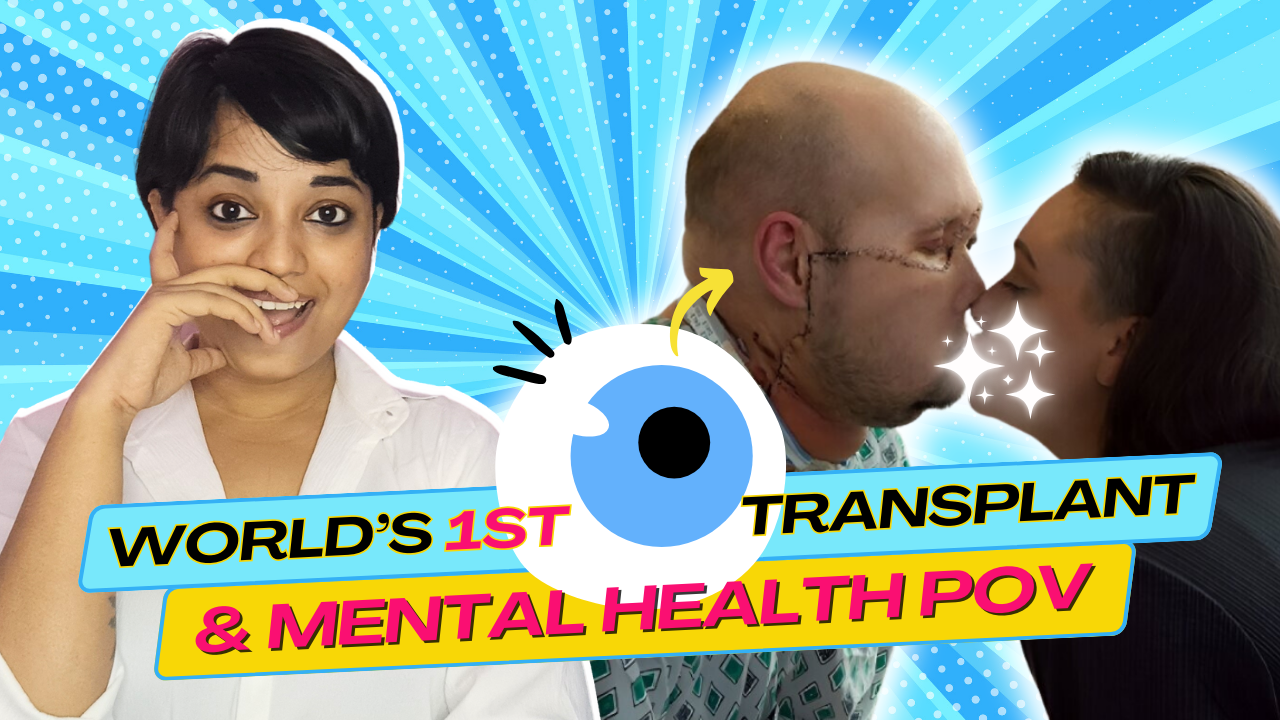A military veteran, a loving partner, lost his eye due to an accident that blew off the left side of his body. Evidently he lost his eye, but… but he didn’t lose his vision and when the doctor approached him for a rare medical experiment, he said YES. That guides the story of today’s video!
According to the American Academy of Ophthalmology, the state of eye transplants, until November 8, 2023, could not perform full eye transplant. It was due to limitations in reconnecting the optic nerve, which carries visual signals to the brain. Instead, corneal transplants were commonly performed, using donor corneas, and it is a trend till date.
Optic Nerve Complexity
The optic nerve, connecting the eye to the brain, is made up of over a million nerve fibers like a fiber optic cable. Once cut, these fibers cannot be reconnected, making whole eye transplants impossible.
Corneal Transplant
Corneal transplantation, a century-old practice, involves replacing a damaged or diseased cornea with a clear donor cornea. This procedure is essential for restoring vision affected by corneal swelling or scarring.
Alternative Eye-Related Transplant
Apart from corneal transplants, other procedures include amniotic membrane transplantation (AMT) using human placenta to heal the cornea, and eyelash transplantation for restoring lashes lost due to injury or medical conditions.
Most recently, there have been developments in transplanting other eye parts, like eyelids and tear ducts, during full-face transplants. Additionally, ongoing research in regenerating damaged retinal cells using human stem cells shows promise for treating conditions like macular degeneration.
While ongoing research on performing whole eye transplants exploring the use of stem cells to replace damaged retinal cells continued, a group of surgeons at NYU Langone led by Dr. Eduardo DeJesus Rodriguez, a plastic surgeon specializing in reconstructive and cosmetic surgery, performed the first-ever whole-eye transplant in a human, and that is none other than the person of today’s video, James Aron. This has been announced on November 9, 2023, an accomplishment being hailed as a breakthrough even though the patient is still grappling with a few challenges.
Signs of Health in Full Eye Transplant
Post-surgery, the transplanted eye exhibits healthy signs, including functional blood vessels and a promising retina. The surgery was part of a partial face transplant that was initially declined as a possibility by several ophthalmologists and neurologists but Dr. Eduardo persisted, He approached the patient Aaron James consenting for this groundbreaking work!
Technical Success and Future Possibilities
The main goal was the survival of the transplanted eyeball, which is now achieved. Even if the vision restoration remains uncertain, this success opens up possibilities for eye transplants beyond corneal or eyelid transplantation.
Innovative Techniques Used
The surgery involved novel methods like injecting adult stem cells from the donor’s bone marrow into the optic nerve to encourage healing and connection between the donor and recipient optic nerves.
Collaboration with Other Research
The surgical team is considering collaboration with other scientists working on restoring vision or images to the visual cortex through full eye transplant potentially through techniques like inserting electrodes into nerve networks like the brain.
Patient’s Perspective and Future Potential
Aaron James, aware of the experimental nature of the surgery and the possibility of not regaining sight, participated with the hope of advancing medical science. Surgeons remain optimistic about the potential for him to regain sight, acknowledging the operation’s technical complexity and success.
Now as a student of Psychology, I am always digging for impact of discoveries on mental health and so in this case too, the successful execution of the first-ever-whole-eye transplant to me has significant implications for mental health, affecting various stakeholders and influencing the fields of psychology and psychiatry.
Full Eye Transplant: Impact on Patients
For individuals like Aaron James and others who might undergo full eye transplant in the future, this medical advancement can have profound psychological implications. The prospect of regaining sight, even partially, can offer hope and improve mental well-being. As the recipient in this case is a military veteran who suffered a severe injury, this development holds particular significance for individuals with similar backgrounds. Veterans and accident survivors often face unique mental health challenges, such as Post Traumatic Stress Disorder, Depression, and Anxiety. Successful transplants can offer not just physical rehabilitation but also psychological restoration of identity and self-esteem.
Medical Community
For surgeons and medical practitioners involved in full eye transplant, there can be significant psychological pressure and ethical considerations too. The success of such a transplant can be a source of professional fulfillment and motivation.
Influence on Psychological Research
This medical breakthrough could open new research avenues in psychology, particularly in understanding the psychological impact of restoring a major sense like sight. It can contribute to research on sensory perception, neuroplasticity, and the psychological adjustment to sensory changes.
Full Eye Transplant: Implications for Psychiatry
Psychiatrists may need to develop new strategies to support patients through the adjustment process of a full eye transplant addressing issues such as the reintegration of visual information and the impact on existing mental health conditions. Like think about it, this medication that goes into treating PTSD for people from the military community, can now be relaxed if this exemplary breakthrough comes mainstream.
Full Eye Transplant: Societal and Ethical Considerations
The availability of this first full eye transplant may raise questions about accessibility, the psychological impact of such high-tech medical solutions, and the societal responsibility to support individuals through their physical and mental health journeys.




